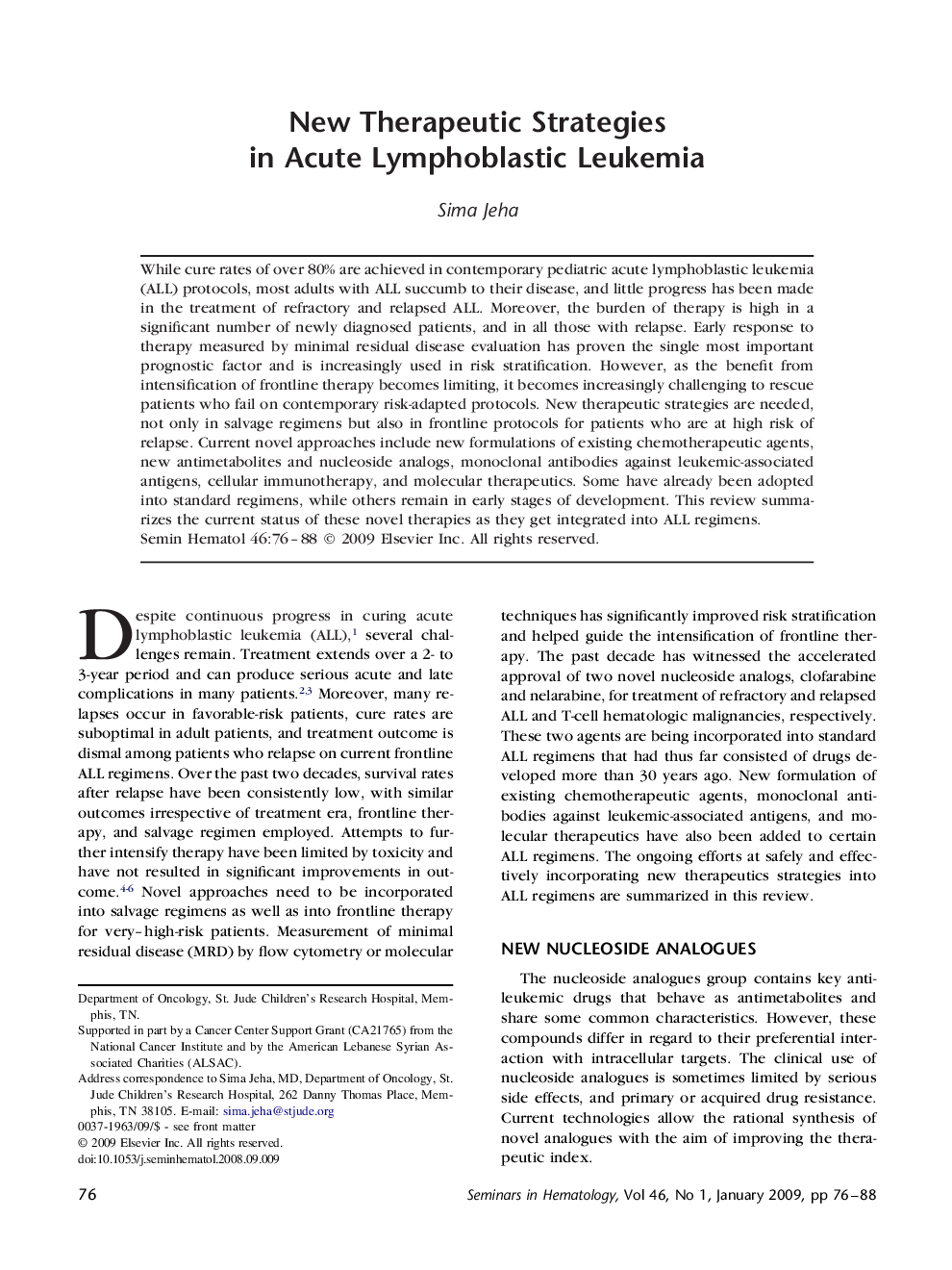| Article ID | Journal | Published Year | Pages | File Type |
|---|---|---|---|---|
| 3333952 | Seminars in Hematology | 2009 | 13 Pages |
While cure rates of over 80% are achieved in contemporary pediatric acute lymphoblastic leukemia (ALL) protocols, most adults with ALL succumb to their disease, and little progress has been made in the treatment of refractory and relapsed ALL. Moreover, the burden of therapy is high in a significant number of newly diagnosed patients, and in all those with relapse. Early response to therapy measured by minimal residual disease evaluation has proven the single most important prognostic factor and is increasingly used in risk stratification. However, as the benefit from intensification of frontline therapy becomes limiting, it becomes increasingly challenging to rescue patients who fail on contemporary risk-adapted protocols. New therapeutic strategies are needed, not only in salvage regimens but also in frontline protocols for patients who are at high risk of relapse. Current novel approaches include new formulations of existing chemotherapeutic agents, new antimetabolites and nucleoside analogs, monoclonal antibodies against leukemic-associated antigens, cellular immunotherapy, and molecular therapeutics. Some have already been adopted into standard regimens, while others remain in early stages of development. This review summarizes the current status of these novel therapies as they get integrated into ALL regimens.
